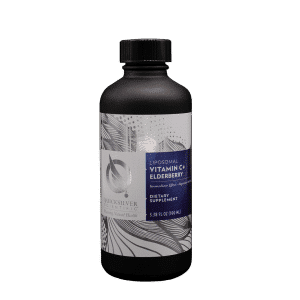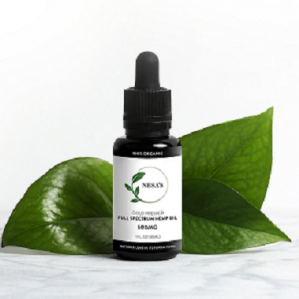What You Need To Know About Fibromyalgia- 9 Healing Essential Oils for Fibromyalgia
Essential Oils for Fibromyalgia: How Do They Work, Top Essential Oils, And How to Use Them
Overview
Fibromyalgia – About 10 million Americans, the majority of them women above the age of 35, suffer from a chronic pain condition that is often misdiagnosed and poorly understood by the medical community. People with this condition are unusually sensitive to pain and are about three times more likely to develop major depression than the general population. Women in the age group of 20 to 50 are the most likely to struggle with Fibromyalgia conditions.
Fibromyalgia has no cure, as its exact causes are not well-understood yet. Treatments available are limited to pain relievers and antidepressant medicines that focus
on targeting isolated symptoms. While these drugs can quickly ease symptoms, they do not tend to work well in the long run. Because of this reason, scientists and health-minded individuals are now turning to complementary therapies like essential oils that are not only safe and sustainable but also help manage the condition more holistically.
Understanding fibromyalgia: rheumatic or neurological?
Fibromyalgia causes recurring episodes of pain and stiffness all over the body. Along with widespread pain, a person may also experience a wide range of emotional and cognitive symptoms, such as fatigue, poor concentration, low mood, lack of clarity in thought and memory (known as fibro fog), irritability, hopelessness, dizziness, headaches, migraines, and sleep problems.
These symptoms may come and go throughout life. But fibromyalgia is not a progressive disease, which means its symptoms will not get worse over time. The exact cause of fibromyalgia is not yet known, but some potential causes points to allergies, to chemicals or foods, viruses, hormonal problems, poor digestion, candidiasis, spinal misalignments, stress, or neurotransmitter deficiency
Although it mimics other rheumatic conditions, fibromyalgia is not an inflammatory or autoimmune disease. It is considered a disease of the central nervous system that impacts the way your brain processes pain signals. It does not cause inflammation or any long-term damage to bones and muscles; it only amplifies a person’s sensory perception of pain, light, and noise. But certain inflammatory conditions, including rheumatoid arthritis, appear to increase a person’s risk of fibromyalgia. Additionally, Magnesium deficiency is often linked to fibromyalgia, so it is important to make sure that you are not magnesium deficient.
The Spectacular Activation Products EASE Magnesium Spray Review
Essential oils for fibromyalgia: how effective are they?
Health care providers say that despite being a serious health risk, fibromyalgia can effectively be managed with proper medication and self-care. Stress-management techniques like yoga, meditation, aromatherapy, and massage therapies can help reduce triggers and improve quality of life.
Essential oils are powerful tools for self-care, having been used for thousands of years for a range of wellness purposes. Using essential oils for fibromyalgia helps because the healing mechanism of aromatherapy involves integrating all mental, physical, cognitive, and psycho-emotional dimensions – exactly what we need for dealing with a complex disorder that encompasses body, mind, emotions, thinking, and memory.
Unlike other pain conditions, fibromyalgia is not a condition of bones and muscles. Treating one symptom at a time may not help because the problem lies with your nervous system (the control center). Research shows that due to their profound effect on the central nervous system, essential oils can help manage chronic stress (a well-known trigger for fibromyalgia), improve mental focus, boost energy levels, reduce fatigue, and promote restful sleep – thus offering a comprehensive approach to dealing with several fibromyalgia symptoms at once.
Best essential oils for fibromyalgia
1. Lavender
Lavender has analgesic, sedative, and anxiolytic properties that can help with fibromyalgia pain and fatigue. Most commonly used as a sleep support oil, lavender is clinically proven to help with insomnia, frequent dreaming, difficulty getting up in the morning, and other sleep difficulties that may be caused by stress or pain.
Numerous studies have reported lavender oil’s efficacy in acute pain as well as chronic pain, including migraines, muscle pain, arthritis pain, menstrual cramps, and even post-surgery pain. Unlike conventional drugs that focus on chemically blocking the production of pain signals, lavender works by sedating the nervous system and inducing relaxation, which naturally alleviates fibromyalgia pain and discomfort.
2. Lemon
Used in traditional medicines for centuries, lemon oil can help with muscle and joint pain, as well as several emotional and cognitive symptoms of fibromyalgia.
One study shows that aromatherapy with lemon oil reduces the sensory perception of pain and improves the quality of life in patients with chronic pain conditions by several complementary mechanisms, such as improving mood, reducing fatigue, controlling anxiety, enhancing concentration, and clearing out mental fog. Researchers noted that fatigue, when accompanied by sleep difficulties, can intensify pain sensations and reduce a person’s ability to cope with pain.
Aromatherapy massage with lemon oil can also help relieve chronic fatigue by releasing muscle tension and calming the nervous system.
3. Black pepper
Aromatherapy with black pepper oil is a traditional remedy for rheumatic and chronic pain conditions. It has warming and stimulating properties that help improve circulation and relax sore muscles. Several studies have reported its effectiveness against aches and pain of connective tissues, as well as chronic fatigue and mental fog – this is why black pepper is often recommended as one of the best essential oils for fibromyalgia.
In a placebo-controlled trial, black pepper oil showed powerful analgesic and antinociceptive (blocking sensory pain signals) properties in persons living with chronic pain conditions. Over the 9-week trial period, patients reported decreased pain intensity and improved pain tolerance after inhaling the essential oil for 15 minutes.
Extracted from the popular spice, this essential oil packs concentrated amounts of piperine – the active principle of black pepper. Piperine works like a nervine tonic and is proven to be immensely beneficial for brain health. When this volatile compound reaches the limbic system of the brain, it enhances clarity of mind, encourages learning, and improves memory and attention.
4. Ginger oil
Highly regarded in aromatherapy as the “oil of empowerment,” ginger essential oil is a natural remedy for soothing muscle aches and tension, reducing psychological stress, improving sleep, and enhancing attentiveness. Its warm, spicy aroma is believed to inspire feelings of confidence and optimism.
Research shows that inhaling ginger oil is deeply relaxing for the central nervous system, which may help control fibromyalgia symptoms of chronic fatigue and exhaustion, such as dizziness, anxiety, confusion, sadness, lethargy, and agitation.
A 2020 study shows that inhalation or topical application of ginger oil helps block pain signals and brings out positive changes in mood and emotions, which may be useful in the treatment of pain, including migraines, headaches, arthritic pain, chronic back pain, and knee pain. Researchers suggested that ginger oil may be an effective long-term treatment for persons living with chronic pain conditions.
5. Clary sage
Clary sage is one of the top essential oils for fibromyalgia fog and chronic fatigue, thanks to its brain-boosting and sleep-promoting abilities. A member of the medicinal sage family, clary sage oil is named and famed for its clarifying effect on the mind, which is believed to promote mental focus and improve mindfulness – the art of living in the present moment.
Studies have suggested that clary sage may be effective in inducing relaxation and controlling depressive symptoms associated with fibromyalgia pain. When used in clinical aromatherapy, this essential oil relaxes the spine and muscles, harmonizes emotions, reduces cortisol levels, enhances mood and cognition, and facilitates the nervous system in treating pain.
6. Frankincense, Turmeric, and Peppermint
One research shows that when peppermint oil is applied topically, it has pain relief benefits associated fibromyalgia and myofascial pain syndrome. Peppermint acts as a natural pain reliever and muscle relaxant.
Turmeric is well known to be an effective pain reliever than drugs like aspirin and ibuprofen. Turmeric contains properties that help relieve inflammation and support healthy and muscles and nerves. Frankincense has been shown to decrease muscle pain and support the healing of nerve tissues.
How to use essential oils for relieving fibromyalgia symptoms
Massage
A warm aromatic massage can quickly ease the pain and stiffness of muscles while also calming your nerves. Take 15-20 ml of carrier oil (preferably almond or olive) and slightly warm it using a double boiler. Add 6-8 drops of essential oil and mix well. Give yourself a full-body massage using gentle strokes – be sure not to rub vigorously.
Clinical aromatherapy
Clinical aromatherapy involves direct inhalation by diffusing the oil in a well-ventilated room. This method is more suitable when pain comes along with mental exhaustion and sleep problems. Inhaling the essential oil is also the quickest way to find relief from widespread pain, headaches, migraines, nausea, and fibro fog.
Warm bath
Taking a warm bath with beautiful aromas can help improve symptoms of chronic fatigue associated with fibromyalgia. Add 2-3 drops of essential oil to 5 ml of coconut oil, mix well, and add it to your warm bathwater.
Sleep aid
Take 1-2 drops of lavender oil on a cotton ball and rub it on your pillows before going to bed. Alternatively, you can use lavender roll-ons to apply the oil directly to your pulse points.
Home Remedy
You can make your own nerve and muscle rub at home. Mix 1 cup of coconut oil and ½ cup of grated beeswax in a glass jar or container. Place the jar into a saucepan with 2 to 3 inches of water and allow to mixture to melt over medium to medium-high heat. DO NOT BOIL AND DO NOT MELT OVER HIGH HEAT! Stir and add 2 to 4 teaspoons of cayenne and 2 to 4 teaspoons of ginger or turmeric.
Allow the mixture to cool slightly and then add15 to 30 drops of peppermint, frankincense, lavender, or a combination of the above essential oils. If you use a combination of the essential oils, do not use more than 30 drops. Pour your home remedy into a metal tin or glass container and let it cool. Use as needed.
Risks and safe practices
If you are considering essential oils as a complementary therapy for fibromyalgia, make sure to speak with your doctor about possible risks. Although essential oils are generally safe when used in recommended amounts, some people may experience allergic symptoms. Essential oils may also interact with some prescription drugs and may have undesirable effects on persons taking antidepressants or blood pressure medicines.
Essential oils should always be diluted first before any kind of skin application. Also, if you are trying an essential oil for the first time, a patch test is recommended before topical use.
Final thoughts
People living with fibromyalgia frequently deal with chronic pain and fatigue, which may culminate into something like depression if not treated with care and awareness. Experts point out that in addition to medical treatments, self-care strategies like aromatherapy should be employed to improve quality of life.
Essential oils have several therapeutic properties that can help ease a wide range of fibromyalgia symptoms. Apart from being natural analgesics, essential oils also help clear out fibro fog and emotional anxiety.
However, it is important to note that aromatherapy works best in conjunction with other natural therapies. Healthy lifestyle habits like exercising regularly, getting adequate sleep, meditating every day, and eating a nutritious diet play a crucial role in the management of fibromyalgia and other chronic pain conditions.
To Your Health!
References
https://www.niams.nih.gov/health-topics/fibromyalgia
https://www.cdc.gov/arthritis/basics/fibromyalgia.htm
https://pubmed.ncbi.nlm.nih.gov/27863613/
https://www.ncbi.nlm.nih.gov/pmc/articles/PMC6016048/
https://pubmed.ncbi.nlm.nih.gov/29624296/
https://pubmed.ncbi.nlm.nih.gov/12146512/
https://www.ncbi.nlm.nih.gov/pmc/articles/PMC4505755/
https://www.ncbi.nlm.nih.gov/pmc/articles/PMC3612440/
https://www.ncbi.nlm.nih.gov/pmc/articles/PMC5192342/
https://www.ncbi.nlm.nih.gov/pmc/articles/PMC2688199/
https://www.ncbi.nlm.nih.gov/pmc/articles/PMC7754412/
https://pubmed.ncbi.nlm.nih.gov/12895685/
https://pubmed.ncbi.nlm.nih.gov/32688401/
https://www.ncbi.nlm.nih.gov/pmc/articles/PMC5318325/
https://pubmed.ncbi.nlm.nih.gov/16780969/
https://www.sciencedirect.com/science/article/pii/S1756464612001740
https://www.ncbi.nlm.nih.gov/pubmed/?term=frankincense+essential+oil+pain+muscle
https://www.ncbi.nlm.nih.gov/pmc/articles/PMC2900090/#CIT21


























0 Comment